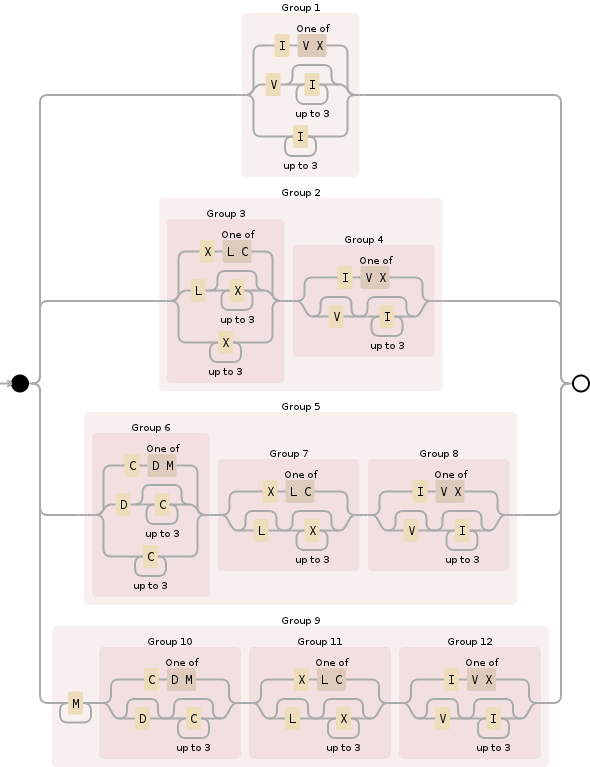How do you match only valid roman numerals with a regular expression?
Thinking about my other problem, i decided I can\'t even create a regular expression that will match roman numerals (let alone a context-free grammar that will generate them
-
I've seen multiple answers that doesn't cover empty strings or uses lookaheads to solve this. And I want to add a new answer that does cover empty strings and doesn't use lookahead. The regex is the following one:
^(I[VX]|VI{0,3}|I{1,3})|((X[LC]|LX{0,3}|X{1,3})(I[VX]|V?I{0,3}))|((C[DM]|DC{0,3}|C{1,3})(X[LC]|L?X{0,3})(I[VX]|V?I{0,3}))|(M+(C[DM]|D?C{0,3})(X[LC]|L?X{0,3})(I[VX]|V?I{0,3}))$I'm allowing for infinite
M, withM+but of course someone could change toM{1,4}to allow only 1 or 4 if desired.Below is a visualization that helps to understand what it is doing, preceded by two online demos:
Debuggex Demo
Regex 101 Demo

- 热议问题

 加载中...
加载中...